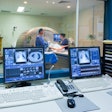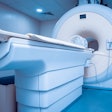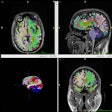Scientists at the Stanford University School of Medicine and Lucile Packard Children's Hospital in Palo Alto, CA, are using functional MRI (fMRI) to show how psychological trauma can leave a trail of damage in a child's brain.
The new study, published online in the Journal of Pediatric Psychology and led by child psychiatrist Dr. Victor Carrion from Packard Children's Hospital, gives the first direct evidence that children with symptoms of post-traumatic stress suffer poor function of the hippocampus, a brain structure that stores and retrieves memories. The research helps explain why traumatized children behave as they do, and could improve treatments for these children.
The findings could be an important step toward better monitoring of post-traumatic stress disorder (PTSD) treatments, which include psychotherapy techniques, such as teaching relaxation exercises, that help children construct a cohesive story about the traumatic event and learn to cope with reminders of the trauma.
Researchers used fMRI to compare 16 young people who had PTSD symptoms with a control group of 11 normal youths. The scientists scanned the brains of the 10- to 17-year-old subjects during a simple test of verbal memory. Subjects read a list of words, then saw a similar list with new words added, and were asked which terms were present on the original list.
The hippocampus worked equally well in stressed and control subjects when the word list was first introduced. However, subjects with PTSD symptoms made more errors on the recall part of the test, and showed less hippocampus activity than control subjects doing the same task.
Subjects with the worst hippocampus function were also most likely to experience a specific set of PTSD symptoms. Impairment of the hippocampus was strongly correlated with "avoidance and numbing" symptoms of PTSD, including difficulty remembering trauma, feeling cut off from others, and lack of emotion.
In the future, physicians and scientists may be able to use fMRI scans of the hippocampus to identify children who are at high risk of PTSD after mass catastrophes.
Related Reading
Researchers develop rhyming paradigm to improve fMRI results, November 10, 2009
fMRI can help assess therapy for fatigued MS patients, November 10, 2009
BOLD fMRI may identify the underlying characteristics of autism, November 10, 2009
Functional MRI may help with prognosis for comatose patients, October 26, 2009
MRI spots brain abnormality in autistic children, May 4, 2009
Copyright © 2009 AuntMinnie.com


.fFmgij6Hin.png?auto=compress%2Cformat&fit=crop&h=100&q=70&w=100)
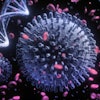


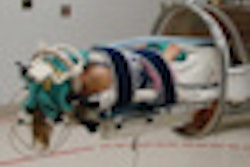
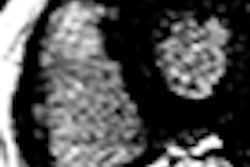
.fFmgij6Hin.png?auto=compress%2Cformat&fit=crop&h=167&q=70&w=250)








